20uF Capacitor
As a leading electronic manufacturer, we offer high-quality 20uF capacitors designed to meet the diverse needs of your electronic projects. These capacitors are essential components that store electrical energy, smoothing out voltage fluctuations and filtering out unwanted noise.
Get 20uF Capacitors with Competitive Price
Looking for high-quality 20uF capacitors without breaking the bank? Look no further! As a leading electronic manufacturer, we offer competitively priced capacitors that deliver exceptional performance.
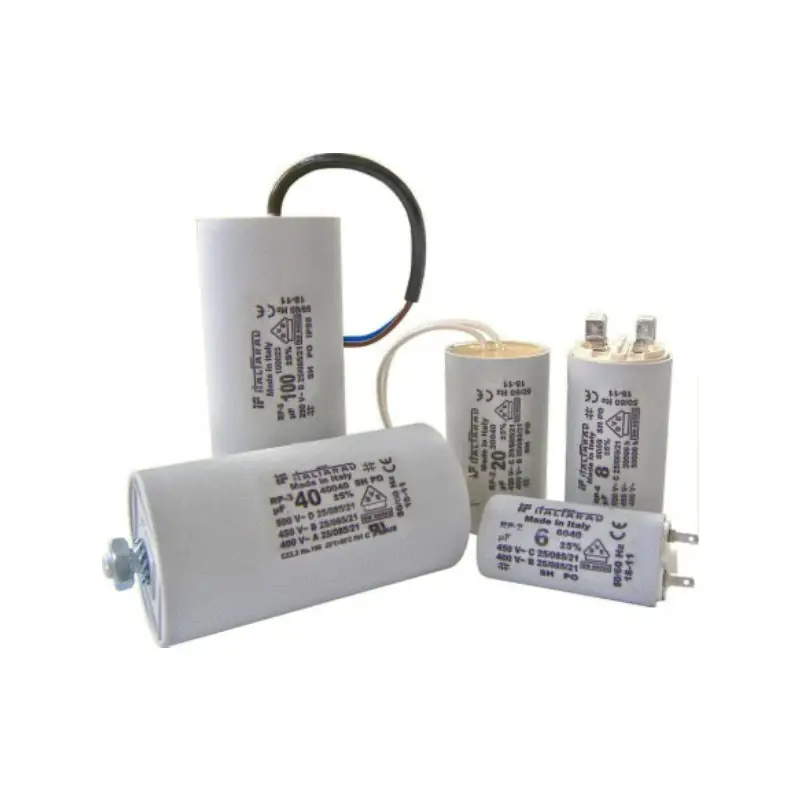
Why 20uF Capacitors
- Enhanced Performance: Improves the overall performance of electronic devices by filtering noise and stabilizing power supplies.
- Increased Efficiency: Can help reduce energy consumption and improve the efficiency of electronic systems.
- Extended Component Lifespan: Reduces stress on other components by filtering out voltage spikes and surges.
- Improved Signal Quality: Helps to ensure clean and accurate signal transmission in audio and video systems.
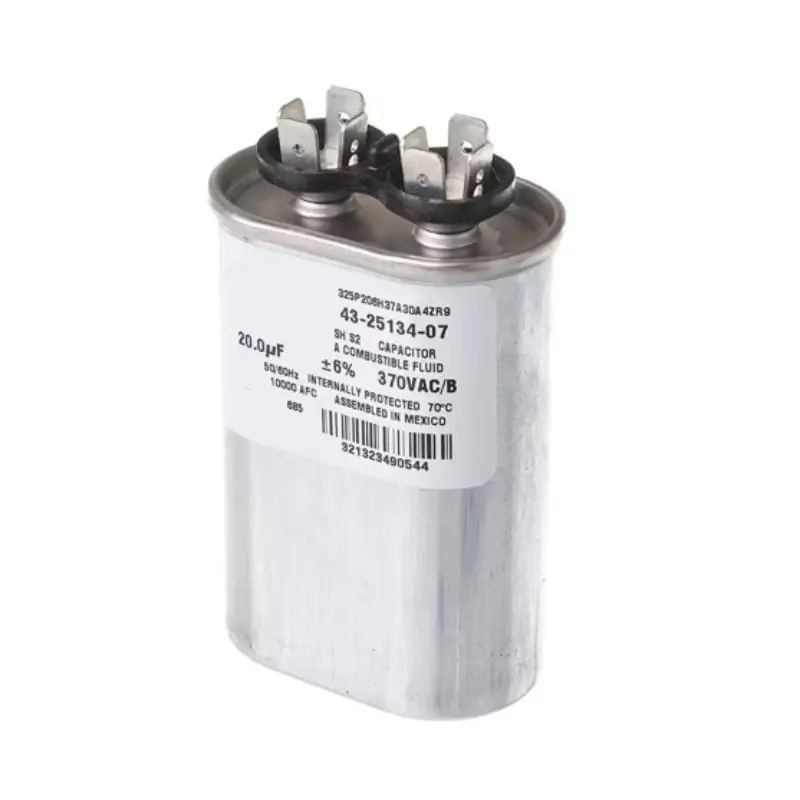
20uf 370vac capacitor
We, a leading capacitor manufacturer, offer high-quality 20uF 370VAC capacitors. These robust components are designed to handle high voltages and demanding applications. Perfect for power factor correction, motor starting, and industrial electronics, our 20uF 370VAC capacitors ensure reliable performance and durability.
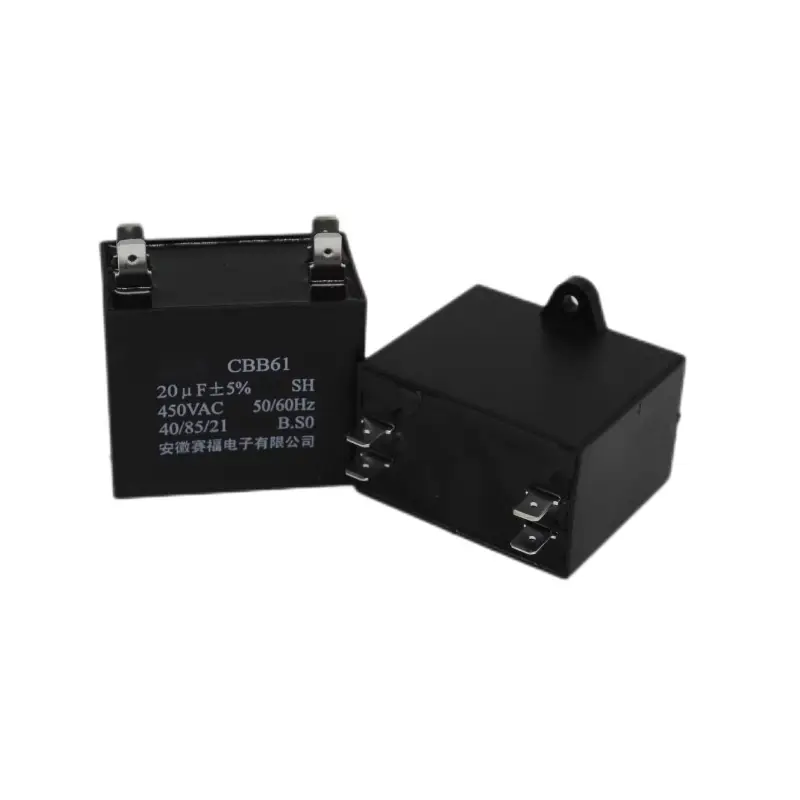
20uf 370vac capacitor
We offer high-quality 20uF 370VAC capacitors, ideal for demanding applications. These capacitors are designed to handle high voltage and provide reliable performance in harsh environments. Perfect for motor starting, power factor correction, and AC filter circuits. Trust our 20uF 370VAC capacitors for superior quality and durability.
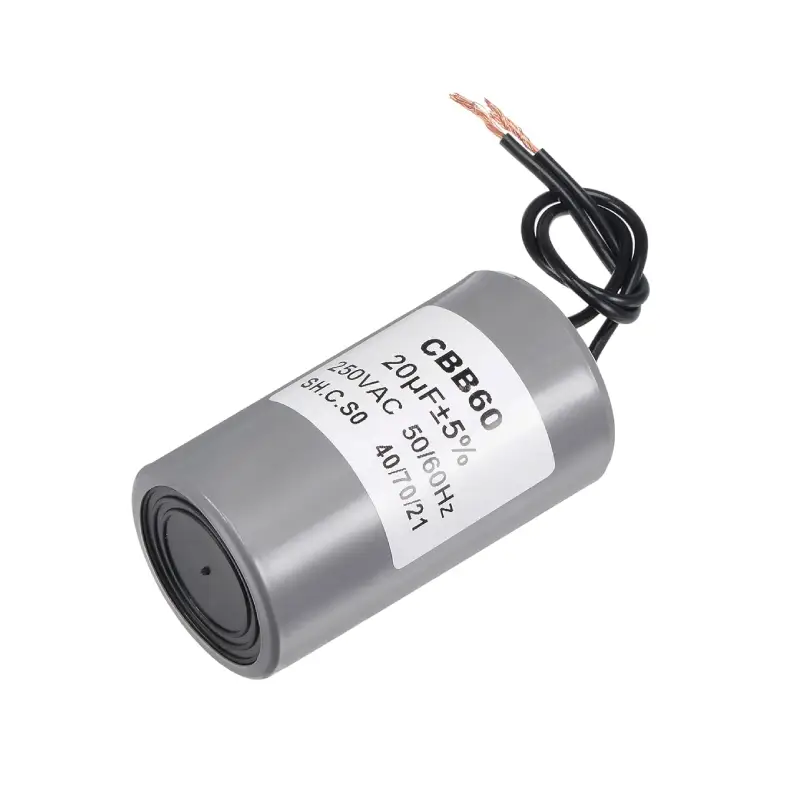
20uf 250v capacitor
We offer high-quality 20uF 250V capacitors, ideal for demanding applications. With a high voltage rating, these capacitors are suitable for power supplies, motor control circuits, and other high-voltage electronic systems. Our 20uF 250V capacitors provide reliable performance, durability, and safety.
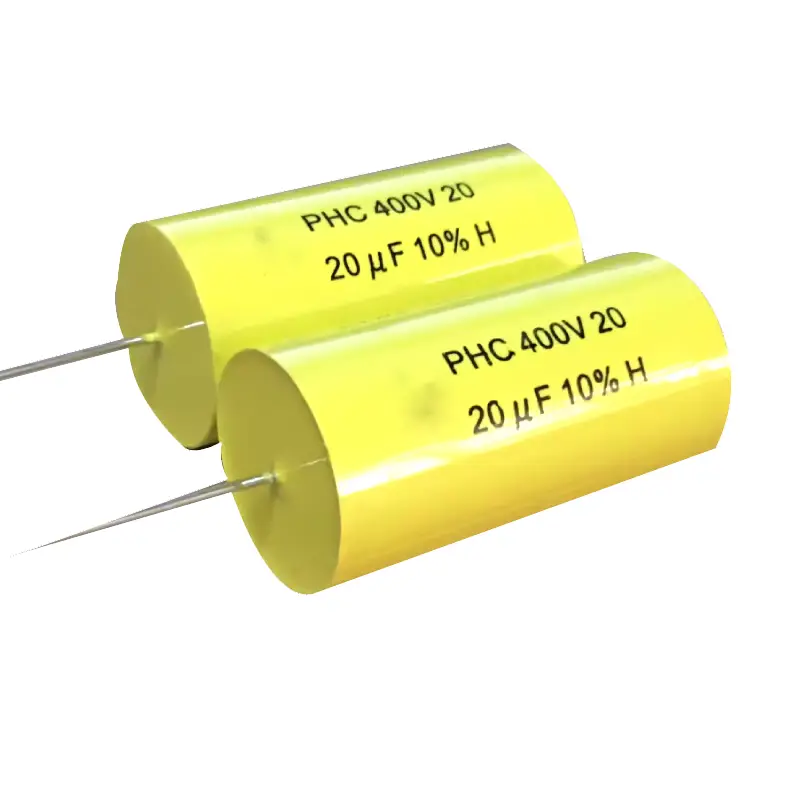
20uf 400v capacitor
As a leading capacitor manufacturer, we offer high-quality 20uF 400V capacitors. These components are designed to handle high voltages and store significant amounts of energy. They are ideal for applications such as power supplies, motor control circuits, and industrial electronics. Our 20uF 400V capacitors are known for their reliability, durability, and excellent performance.
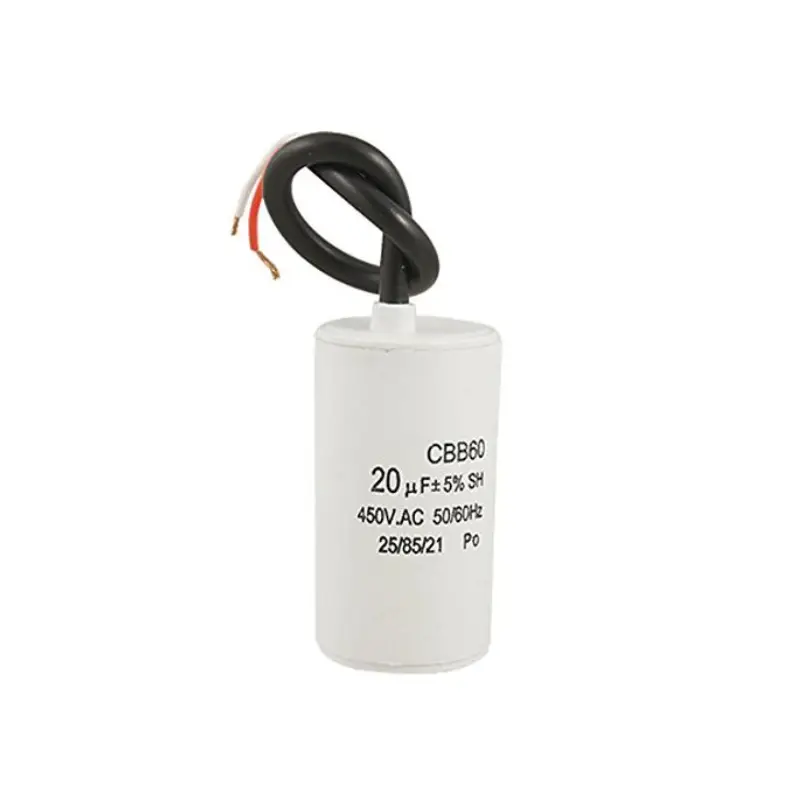
20uf 450v capacitor
We offer high-quality 20uF 450V capacitors, ideal for demanding applications. These capacitors are designed to handle high voltages and store significant energy. Perfect for power supplies, motor control circuits, and industrial electronics, our 20uF 450V capacitors deliver reliable performance and durability.
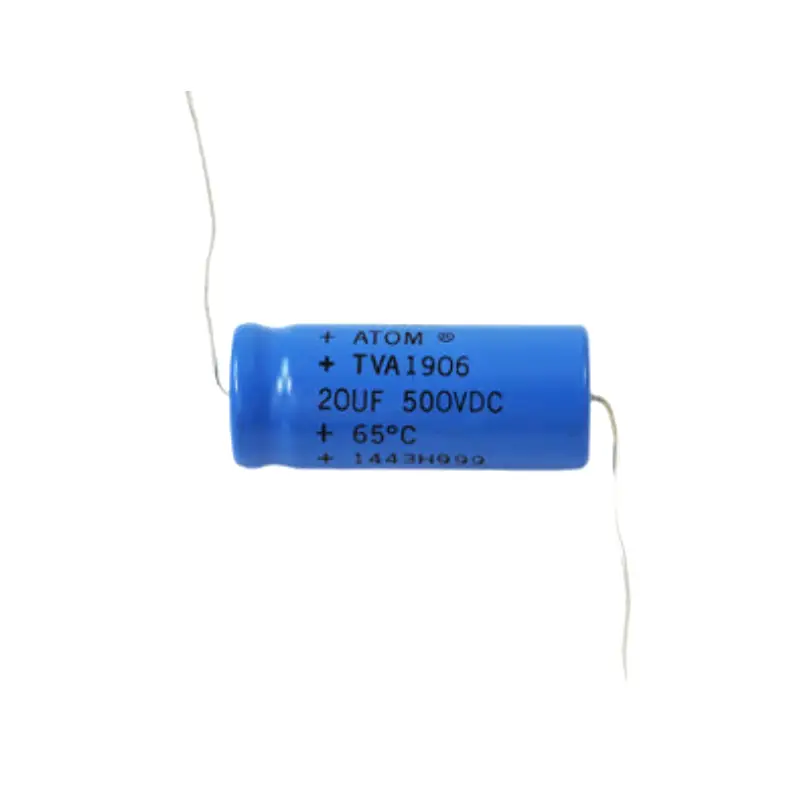
20uf 500v capacitor
As a leading capacitor manufacturer, we offer high-quality 20uF 500V capacitors. These components are designed to handle high voltages and store significant amounts of energy. They are ideal for applications requiring robust and reliable performance, such as power supplies, motor control circuits, and industrial electronics.
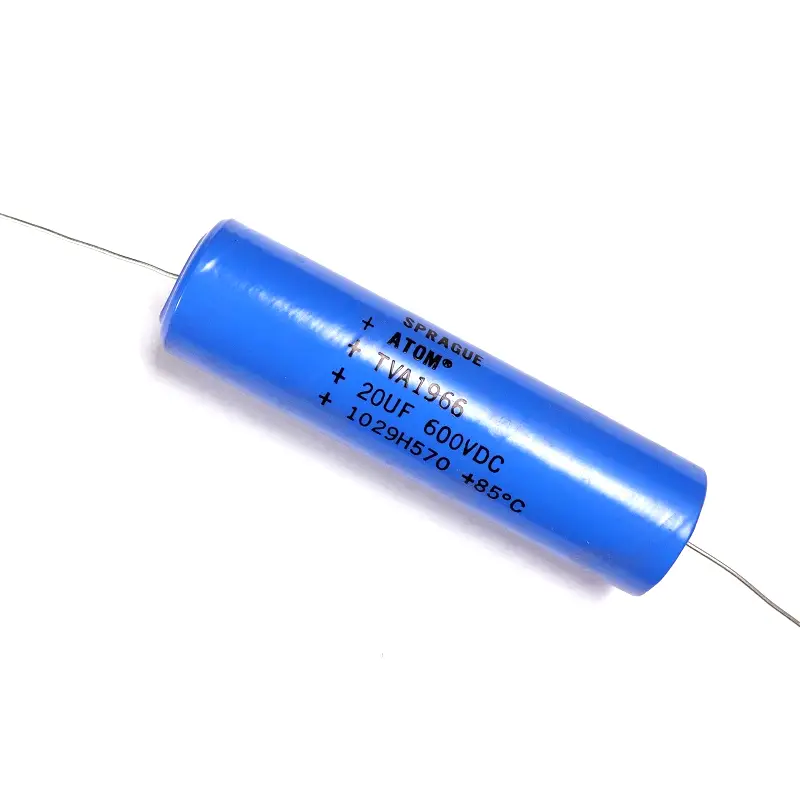
20uf 600v capacitor
We offer high-quality 20uF 600V capacitors, ideal for high-voltage applications. These capacitors are designed to handle significant voltage surges and provide reliable performance in demanding environments. With their robust construction and superior dielectric strength, our 20uF 600V capacitors are the perfect choice for power electronics, industrial control systems, and other high-voltage applications.
20uF Capacitor FAQs
What uses a 20 uF capacitor?
20 uF capacitors are versatile components used in various electronic applications. Here are some common uses:
Power Supply Filtering:
- Smoothing out voltage fluctuations and reducing ripple in power supply circuits.
Motor Start-Up:
- Assisting in the initial start-up of single-phase AC motors.
Audio Circuitry:
- Filtering out unwanted frequencies in audio amplifiers and filters.
Timing Circuits:
- Used in RC circuits to create time delays or oscillators.
Power Factor Correction:
- Improving the power factor of AC circuits.
The specific application of a 20 uF capacitor depends on its voltage rating and the circuit’s requirements.
20uf capacitor replacement
Replacing a 20uF Capacitor: A Step-by-Step Guide
Safety First:
- Disconnect Power: Always ensure the device is unplugged or disconnected from the power source before starting the replacement process.
- Discharge the Capacitor: Even after disconnecting power, a capacitor can still hold a charge. Use a high-resistance resistor (like a 10k ohm resistor) to discharge the capacitor safely.
Identifying the Capacitor:
- Visual Inspection: Look for a cylindrical or rectangular component with markings indicating its capacitance (20uF) and voltage rating.
- Circuit Diagram: Refer to the device’s circuit diagram to pinpoint the exact location and specifications of the capacitor.
Replacement Process:
Desoldering:
- Use a soldering iron to carefully melt the solder joints connecting the capacitor’s leads to the circuit board.
- Once the solder is melted, gently wiggle the capacitor to remove it from the board.
Soldering the New Capacitor:
- Ensure the new capacitor has the same capacitance (20uF) and voltage rating as the old one.
- Position the new capacitor in the same orientation as the old one.
- Apply a small amount of solder to each lead of the new capacitor.
- Carefully solder the leads to the appropriate points on the circuit board, ensuring a strong and clean connection.
Testing:
- Power On: Once the capacitor is securely soldered, reconnect the power source to the device.
- Functionality Check: Verify that the device is functioning correctly and that the replaced capacitor is not causing any issues.
Additional Tips:
- Voltage Rating: Always choose a replacement capacitor with a voltage rating equal to or greater than the original.
- Polarized Capacitors: If the capacitor is polarized (indicated by a positive and negative marking), ensure it is installed with the correct polarity.
- Heat Sink: If the capacitor is subjected to high temperatures, consider using a heat sink to dissipate heat.
- Professional Help: If you’re unsure about the replacement process or the device’s specific requirements, consult a qualified technician.
By following these steps and considering the specific requirements of your device, you can successfully replace a 20uF capacitor.
Is a higher uF capacitor better?
Not necessarily. While a higher uF capacitor can often improve performance in certain applications, it’s not always better.
Here’s a breakdown:
When a Higher uF Capacitor is Beneficial:
- Power Supply Filtering: A higher uF capacitor can more effectively filter out ripple voltage, leading to a smoother and more stable power supply.
- Audio Circuits: A higher uF capacitor can improve the low-frequency response of an audio amplifier.
- Timing Circuits: It can increase the time constant of an RC circuit, leading to longer delays or different timing behaviors.
When a Higher uF Capacitor Might Not Be Ideal:
- Circuit Oscillations: In some circuits, increasing the capacitance can lead to unwanted oscillations or instability.
- Physical Constraints: A higher uF capacitor might be physically larger, which could limit its use in certain applications.
- Cost: Higher capacitance values can sometimes be more expensive.
The best choice depends on the specific circuit and its requirements. Always consider the circuit’s design, the desired performance, and any potential limitations when selecting a capacitor.
It’s crucial to ensure that the voltage rating of the capacitor is sufficient for the application. A higher voltage rating is often required for higher capacitance values.
If you’re unsure about the best choice, consult the circuit’s datasheet or seek advice from an electronics expert.
calculate the energy stored in a 20uf capacitor?
To calculate the energy stored in a capacitor, we use the formula:
Energy (E) = 1/2 * Capacitance (C) * Voltage^2 (V^2)
In this case:
- Capacitance (C) = 20uF = 20 * 10^-6 F
- Voltage (V) = ? (This value is missing, so we’ll use a variable V)
So, the formula becomes:
Energy (E) = 1/2 * 20 * 10^-6 F * V^2
Energy (E) = 10 * 10^-6 * V^2 Joules
To get a specific value for the energy stored, you need to know the voltage across the capacitor. Once you have the voltage, you can plug it into the formula and calculate the energy.
a 10uf capacitor and a 20uf capacitor are connected in series
When capacitors are connected in series, the total capacitance is calculated using the following formula:
1/C_total = 1/C_1 + 1/C_2 + …
In this case, we have two capacitors:
- C_1 = 10uF
- C_2 = 20uF
So,
1/C_total = 1/10uF + 1/20uF
To simplify, we can find a common denominator:
1/C_total = (2 + 1) / 20uF
1/C_total = 3 / 20uF
Now, to find C_total, we take the reciprocal of both sides:
C_total = 20uF / 3
C_total ≈ 6.67uF
Therefore, the total capacitance of the two capacitors connected in series is approximately 6.67uF.